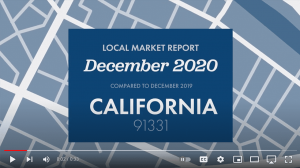In the highly competitive real estate arena, differentiating yourself from the competition and forging meaningful connections with potential clients hinge on your ability to craft a unique, captivating brand voice. By developing informative, engaging, and client-centric content across various marketing channels, you can strengthen your brand identity, establish yourself as a valuable resource, and foster lasting relationships that drive business success.
In this comprehensive guide, we will delve into the essentials of crafting engaging and compelling content tailored to the preferences and needs of your target audience. Learn how to develop a well-rounded content marketing strategy, focusing on various content formats such as blog posts, social media updates, case studies, and video content that align with your brand voice and objectives. Unearth best practices for creating informative, client-focused content that resonates with your target audience, enhances your online presence, and fosters meaningful engagements.
At Zentap, we recognize the immense power of exceptional content marketing in driving the success of real estate professionals. With our all-encompassing platform, we strive to provide the tools and resources necessary to streamline your content creation and distribution efforts, helping you create compelling content that captures your audience’s attention, positions you as an industry expert, and fuels your business growth. Discover the transformative potential of partnering with Zentap and unlock a world of content marketing possibilities, enabling you to leave a lasting impression on your target audience and excel in the competitive real estate market.
Developing a Comprehensive Content Marketing Strategy
A successful content marketing strategy requires thoughtful planning and a clear focus on your objectives, brand voice, and target audience:
Define Your Goals: Identify your main content marketing goals, such as lead generation, brand awareness, or client engagement, ensuring that your content aligns with your overarching business objectives.
Understand Your Target Audience: Conduct thorough research to gain insights into your target audience’s preferences, needs, and pain points, crafting content tailored to address their unique interests and concerns.
Establish Your Brand Voice: Develop a consistent brand voice and messaging that echoes your unique value proposition, allowing you to connect with your audience on a deeper level and foster lasting brand loyalty.
Plan Your Content Calendar: Create a content calendar outlining the topics, formats, and distribution channels for your content, ensuring regularity and consistency in your content marketing efforts.
Experimenting with Diverse Content Formats
Offering a variety of content formats can help you effectively engage your audience, catering to various preferences and consumption habits:
Blog Posts: Create informative, engaging blog content covering industry insights, market trends, and valuable tips, positioning yourself as a valuable resource for your audience.
Social Media Updates: Share consistent, on-brand updates across your social media platforms, utilizing visual content, interactive elements, and timely information to encourage engagement and strengthen your online presence.
Case Studies and Testimonials: Showcase your success stories, highlighting your expertise, unique selling points, and client satisfaction by publishing case studies and testimonials to instill trust and credibility in your brand.
Video Content: Leverage the power of video content across platforms like YouTube, Facebook, and Instagram to offer virtual property tours, market updates, and personalized messages, fostering an immersive and captivating connection with your audience.
Best Practices for Crafting Engaging, Client-Focused Content
Keep the following best practices in mind when creating content that resonates with your target audience and fosters lasting engagements:
Authenticity and Transparency: Cultivate trust with your audience by being genuine, transparent, and open in your content, honestly addressing client concerns, and sharing your unique perspective on industry topics.
Value-Based Approach: Ensure each piece of content offers value to your audience, addressing their needs, answering their questions, or providing actionable solutions to their challenges.
Storytelling and Emotional Appeal: Leverage the power of storytelling to create emotional connections with your audience, making your content more memorable and relatable.
Quality Assurance: Ensure your content is well-structured, professionally written, and free of errors or inconsistencies, reflecting your commitment to quality and professionalism.
Optimizing and Distributing Your Content for Maximum Impact
Effectively promoting and optimizing your content across various channels ensures greater visibility, reach, and impact:
Search Engine Optimization (SEO): Implement SEO best practices, such as keyword research, on-page optimization, and high-quality backlinks, to enhance your content’s visibility and drive organic traffic to your site.
Social Media Promotion: Share and promote your content across social media platforms, encouraging engagement, interactions, and sharing from your followers.
Email Marketing: Integrate content promotion within your email marketing efforts, sharing relevant resources and updates to nurture client relationships and foster ongoing engagement.
Paid Advertising: Invest in targeted paid advertising campaigns, such as Google Ads or Facebook Ads, to amplify the reach of your top-performing content and generate high-quality leads for your real estate business.
Conclusion
Crafting compelling and engaging content tailored to your target audience is essential for forging meaningful connections, enhancing your brand voice, and standing out in the competitive real estate landscape. By developing a comprehensive content marketing strategy, experimenting with diverse content formats, adhering to best practices, and optimizing your content for maximum impact, you can effectively capture your audience’s attention, position yourself as an industry expert, and fuel your business growth.
Partner with Zentap to unlock the full potential of your real estate content marketing efforts, accessing our cutting-edge platform designed to streamline content creation and distribution through automated real estate social media posts. Explore our suite of tools, resources, and insights that enable you to craft captivating content that resonates with your target audience, enhances your brand identity, and propels your business success in the digital age.

 Login
Login



